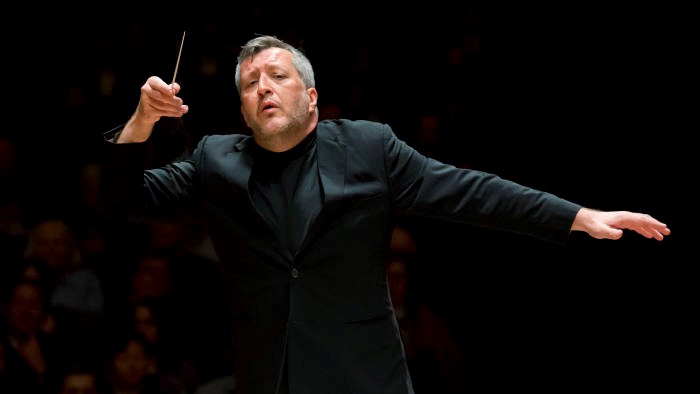
 (4 / 5)
(4 / 5)
It was a full throttle concert with the London Philharmonic Orchestra, with Thomas Adès in both conducting and compositional duties. It would prove to be a bookish evening of Shakespeare and Dante, the latter in my opinion needs to become more of a resource in this country.
Finnish composer Sibelius wrote incidental music for Shakespeare’s The Tempest and it proved to be quite daring. It pushed boundaries and had a lot of spark, the composer’s talent’s heard in all his music. The joyous, rompy moments are met with more serious mystical bouts, the orchestra in their element here. Following on was the UK premier of Adès’ own The Tempest Symphony taken from this opera of high regard, now in the repertoire, last seen in Milan in the winter. I’ll confess I’m more intrigued by the opera, as a whole when I get to hear it sometime. It’s more of a suite like the Sibelius really. It had some dynamic flair and thrill, though it leaned on a heavy amount of neo-classicism, which is fine in equal measure but still.
Adès conducts quite aggressively, his rugby build and now fashioning a silver fox look, he could be terrifying on the podium. He has moments of maestro fury, with the result from the players less dramatically offered. Though he does know his music so I do expect a bit of bravado. He swoops around the players, making all too sure the little intricate moments are delivered well. Starting with Dante, his Inferno Suite (being a newer work) might have been the real highlight of the night. Vividly detaining those who suffer in the layers of hell: The Selfish, The Popes, The Hypocrites and more the orchestra explodes into a sort of monster form. The massive tonal shift into a more circus like phase left the audience in applause, assuming it was the end. It wasn’t. The final blow was the evocative Satan in the lake of ice, where the composer wants us to feel sorry for him. The quivering strings and other treasures wrapped up what should remain one of Adès’ more recent classics.
We had not left the damming clutch of Dante just yet, as we had Tchaikovsky’s Francesca da Rimini. This ‘Fantasy after Dante’ is a lesser known work. This music the Russian composer proved to be a sensation. Francesca is being punished for her adultery and she is forever faced in darkness as her body is swept around by storms…one can’t deny Dante his originality in his cruelty. Having wanted to write and opera and failing, the composer’s brother Modest suggestive an orchestral work and what stands out most is the innovation. The late romantic trappings are here (as ever) though Tchaikovsky seemed to latch onto to doomed figures in literature, his own marriage a complete disaster by any means.
I think it’s time to hear Adès’ Tempest proper now and of course more great music of his.
